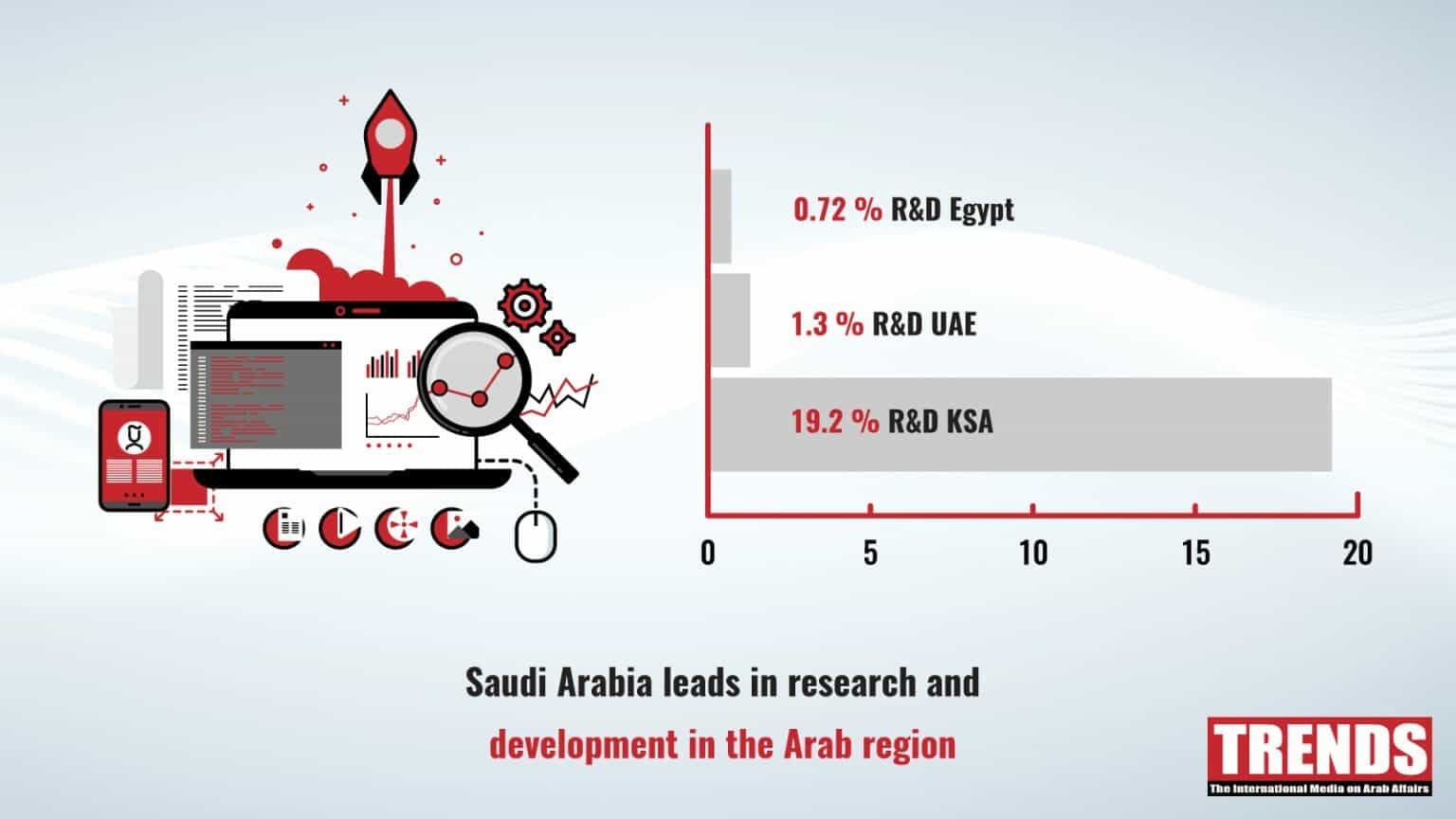Saudi Arabia spared the highest — $12.5 billion — funds for research and development in the Middle East and Africa Region, which has made little advance in spending on science due to widespread political disturbances, according to a UNESCO report.
Egypt ($6.1 billion) and the UAE ($4.2 billion) were the other two big funders of research and development in their countries.
Negligible growth in R&D spending

However, exceptions exist in the region as the UAE saw the most significant increase, from 0.69 percent in 2014 to 1.30 percent in 2018, followed by Egypt, which invested a value of 0.72 percent of its government revenues in 2018 compared with 0.64 percent in 2014.
The report stressed the model of the UAE, which nearly doubled its research expenditure, currently contributing 0.42 percent of worldwide scientific research expenditure.
Jordan leader in increasing the number of researchers
In 2018, the number of researchers in the Arab region rose by four percent to 682 per million people. The results showed that Jordan was ranked first in the Arab world when it came to increasing the number of researchers, outpacing many countries worldwide.
Jordan’s ratio of researchers to its citizens was 150 percent of its closest competitors, followed by Iraq at 60 percent, Bahrain at 58 percent, and the UAE at 20 percent.
Gobal scenario
Developed countries compete with each other to invest more of their annual budget in science, development and innovation that have become a tool for industrial supremacy, educational achievements and overall business success.
The United Nations Educational, Scientific, and Cultural Organization’s (UNESCO) Science Report 2021 found that scientific research spending rose by about 19.2 percent between 2014 and 2018, faster than the rise in global average income, which rose by only 14.8 percent.
Investment in scientific research also led to an increase in the number of researchers, especially in big powers such as the United States, China and Russia.
Only four countries in the world allot more than US$100bn each year to Research and Development (R&D), with the US leading the way and China close behind.
R&D in Saudi “Vision 2030”
The importance of research and development spending in countries is related to recognizing the importance of investing in this sector, which results in significant achievements and development in institutions’ educational, research, and administrative fields.
Additionally, it increases governments’ income when the private sector participates in this transformation. Thus, Saudi Arabia established a higher committee for research, development, and innovation in July 2021, as one of the goals of sustainable development and aspiration of “Vision 2030,” when it seeks to diversify its revenue streams and reduce its reliance on oil.
In 2020 Saudi Arabia also achieved advanced scientific research results in Arab countries because Saudi Arabia retained its international position, according to its “Nature 2020” index, as the one with the most significant research contribution in the Arab world.








